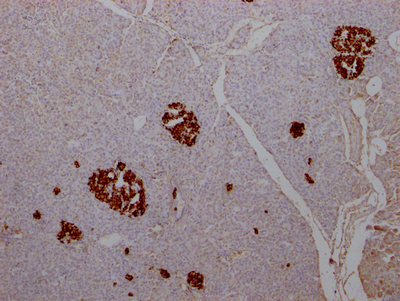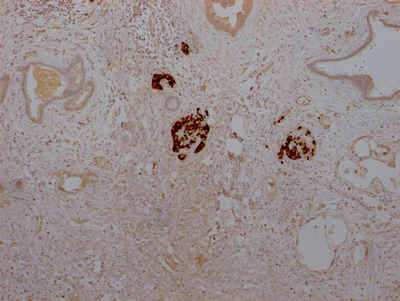The INS recombinant monoclonal antibody is developed using protein technology and DNA recombinant technology. Initially, a synthesized peptide from human INS protein was used to immunize mice. After that, the spleen of the mice was extracted under aseptic conditions, and the total RNA of spleen cells was isolated. The cDNA obtained from RNA reverse transcription was then used as a template for the PCR amplification of the INS antibody gene. The INS antibody gene was then inserted into a vector and transfected into host cells for culture. Subsequently, the INS recombinant monoclonal antibody was purified from the supernatant of cell culture using affinity chromatography. This antibody underwent rigorous verification and can now be used in ELISA and IHC experiments for human INS protein detection.
The INS (insulin) protein is a hormone that plays a crucial role in regulating glucose metabolism in cells. It is produced and secreted by pancreatic beta cells in response to elevated blood glucose levels. The primary function of insulin is to stimulate glucose uptake and utilization in peripheral tissues, such as muscle and adipose tissue, and to suppress glucose production in the liver. Insulin also stimulates glycogen synthesis in the liver and muscle, which helps to store excess glucose. Dysregulation of INS can lead to various metabolic disorders, such as diabetes mellitus.







